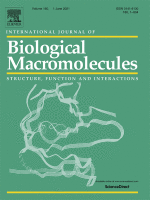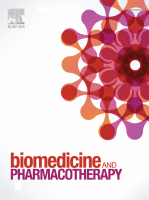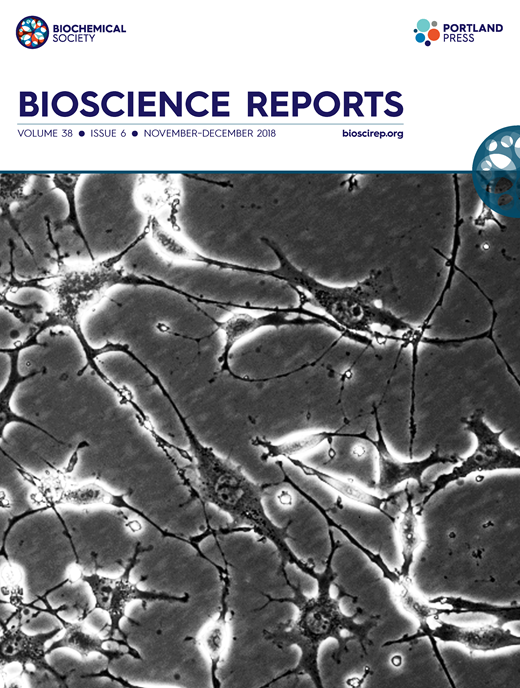Chai Hu
How to submit an article:
- Registered users can submit any published journal article that has a unique DOI (Digital Object Identifier) name or link to Research Hub.
- For example, you can paste the full DOI link:
https://doi.org/10.1109/5.771073or just the DOI name:10.1109/5.771073into the field above and click submit. - The person who is first to submit a valid article to Research Hub will forever be credited for it, and every article submission earns you +6 Research Points.
Also known as: Bupleurum chinense, Radix Bupleuri
Published research studies are articles that present the findings of original research that has undergone a peer-review process and has been made publicly available in scholarly journals, books or other media.

Extraction, purification, structure characteristics, biological activities and pharmaceutical application of Bupleuri Radix Polysaccharide: A review
2023 May International Journal of Biological Macromolecules Yu X, Miao Z, Zhang L, Zhu L, Sheng H
The review systematically summarizes the research progress in the extraction, purification, structure characteristics, biological activities, structure-activity relationship and pharmaceutical applications of BRP, and discusses the deficiencies of the current research on some aspects of BRP, which can provide a basis for further study on BRP.
Review Article Chai Hu
Bupleuri radix for Acute Uncomplicated Respiratory Tract Infection: A Systematic Review of Randomized Controlled Trials
2022 Feb 04 Frontiers in Pharmacology Yan LJ, Wang ZJ, Fang M, Lan HD, Moore M, Willcox M, et al.
Low-certainty or very low-certainty evidence demonstrated that Bupleuri radix (solution for injections and pills) has an antipyretic effect on febrile patients with acute uncomplicated respiratory tract infection (ARTI), but it has no effect on other AURTI symptoms.
Systematic Review Chai Hu URTI Acute Uncomplicated Respiratory Tract Infection (ARTI)
Xiao Chai Hu Tang for Peptic Ulcers: A Systematic Review and Meta-Analysis of Randomized Controlled Trials
2021 Apr 30 Evidence-Based Complementary and Alternative Medicine Min Li, Wenchao Dan, Hui Zhang, Yong’en Yun, Qingyong He
Our findings show that Xiao Chai Hu Tang (XCHT) can treat peptic ulcers as part of an alternative medicine approach.
Systematic Review Meta-Analysis Xiao Chai Hu Tang Stomach Ulcer
Botany, traditional uses, phytochemistry, analytical methods, processing, pharmacology and pharmacokinetics of Bupleuri Radix: A systematic review
2020 Nov Biomedicine & Pharmacotherapy Jiang H, Yang L, Hou A, Zhang J, Wang S, Man W, et al.
Compared with the previous review of BR, this review is the most comprehensive, latest and in-depth summary of BR. This paper not only summarizes the studies of botany, traditional applications, phytochemistry, pharmacology, and toxicity. It is also the first time to summarize and analyze the analysis method, quality control, processing method, processing action and pharmacokinetics of BR based on the limited literature.
Systematic Review Chai Hu
The Chinese medicine Chai Hu Li Zhong Tang protects against non-alcoholic fatty liver disease by activating AMPKα
2018 Nov 7 Bioscience Reports Meng Zhang, Yuan Yuan, Qing Wang, Xiaobo Li, Jiuzhang Men, Mingxin Lin
Our results showed that CHLZT or AICAR significantly decreased the serum levels of TG, TC, LDL-C, AST, ALT, and insulin in NAFLD rats, and significantly increased their serum HDL-C levels.
Fatty Liver Disease NAFLD Metabolic SyndromeResearch insights are moderated by the Research Hub team and offer an at-a-glance overview of interesting research findings.

2018 BMC Complementary Medicine and Therapies
Chai Hu Shu Gan San (a traditional Chinese Medicine) is a promising in treating depression, especially in post-stroke and postpartum cases.
Systematic Review Chai Hu Shu Gan San Post-Stroke Depression Postpartum Depression
Treatment of depression with Chai Hu Shu Gan San: a systematic review and meta-analysis of 42 randomized controlled trials
Sun Y, Xu X, Zhang J, Chen Y

2015 Evidence-Based Complementary and Alternative Medicine
TCM pattern-based treatments for depression frequently use Xiao Yao and Chai Hu Shu Gan decoctions, with Bai Shao and Chai Hu herbs common across different TCM patterns.
Systematic Review Chai Hu Shu Gan San Depression Xiao Yao San
Prescription of Chinese Herbal Medicine in Pattern-Based Traditional Chinese Medicine Treatment for Depression: A Systematic Review
Yeung WF, Chung KF, Ng KY, Yu YM, Zhang SP, Ng BFL, et al.
Review Articles
Review articles summarise and critically evaluate the current state of research on a specific topic or field by synthesising multiple primary research studies.

Extraction, purification, structure characteristics, biological activities and pharmaceutical application of Bupleuri Radix Polysaccharide: A review
2023 May International Journal of Biological Macromolecules Yu X, Miao Z, Zhang L, Zhu L, Sheng H
The review systematically summarizes the research progress in the extraction, purification, structure characteristics, biological activities, structure-activity relationship and pharmaceutical applications of BRP, and discusses the deficiencies of the current research on some aspects of BRP, which can provide a basis for further study on BRP.
Review Article Chai Hu
Bupleuri radix for Acute Uncomplicated Respiratory Tract Infection: A Systematic Review of Randomized Controlled Trials
2022 Feb 04 Frontiers in Pharmacology Yan LJ, Wang ZJ, Fang M, Lan HD, Moore M, Willcox M, et al.
Low-certainty or very low-certainty evidence demonstrated that Bupleuri radix (solution for injections and pills) has an antipyretic effect on febrile patients with acute uncomplicated respiratory tract infection (ARTI), but it has no effect on other AURTI symptoms.
Systematic Review Chai Hu URTI Acute Uncomplicated Respiratory Tract Infection (ARTI)
Xiao Chai Hu Tang for Peptic Ulcers: A Systematic Review and Meta-Analysis of Randomized Controlled Trials
2021 Apr 30 Evidence-Based Complementary and Alternative Medicine Min Li, Wenchao Dan, Hui Zhang, Yong’en Yun, Qingyong He
Our findings show that Xiao Chai Hu Tang (XCHT) can treat peptic ulcers as part of an alternative medicine approach.
Systematic Review Meta-Analysis Xiao Chai Hu Tang Stomach Ulcer
Botany, traditional uses, phytochemistry, analytical methods, processing, pharmacology and pharmacokinetics of Bupleuri Radix: A systematic review
2020 Nov Biomedicine & Pharmacotherapy Jiang H, Yang L, Hou A, Zhang J, Wang S, Man W, et al.
Compared with the previous review of BR, this review is the most comprehensive, latest and in-depth summary of BR. This paper not only summarizes the studies of botany, traditional applications, phytochemistry, pharmacology, and toxicity. It is also the first time to summarize and analyze the analysis method, quality control, processing method, processing action and pharmacokinetics of BR based on the limited literature.
Systematic Review Chai Hu
Treatment of depression with Chai Hu Shu Gan San: a systematic review and meta-analysis of 42 randomized controlled trials
2018 Feb 17 BMC Complementary Medicine and Therapies Sun Y, Xu X, Zhang J, Chen Y
Systematic Review Meta-Analysis Chai Hu Shu Gan San Postpartum Depression Post-Stroke DepressionChai Hu Shu Gan San (a traditional Chinese Medicine) is a promising in treating depression, especially in post-stroke and postpartum cases.
Clinical Trials
Clinical trials are research studies that involve people and are conducted to evaluate the safety and efficacy of new treatments or interventions, such as drugs, medical devices, or behavioural therapies.
Study Protocols
Published study protocols are detailed plans that outline the objectives, methodology, statistical analyses, and organisation of a research study that have been made publicly available for others to review and use as a reference.
Presentation Slides

Systematic Review
Chai Hu Shu Gan San (a traditional Chinese Medicine) is a promising in treating depression, especially in post-stroke and postpartum cases.
Sun Y, Xu X, Zhang J, Chen Y

Systematic Review
TCM pattern-based treatments for depression frequently use Xiao Yao and Chai Hu Shu Gan decoctions, with Bai Shao and Chai Hu herbs common across different TCM patterns.
Yeung WF, Chung KF, Ng KY, Yu YM, Zhang SP, Ng BFL, Ziea ETC
Executive Summary
Write an executive summary in the form of a blog article on the topic of "Research into Chinese medicine treatment for Chai Hu" summarising the research below and using language that can be easily understood by patients and avoiding medical jargon using a professional and caring tone of voice.
Write an executive summary in the form of a blog article on the topic of "Researched Chinese medicine treatments for Chai Hu" summarising the research below in an objective and easy to understand way, and using language that can be easily understood by patients. Group the article into Chinese medicine treatments first, followed by nutrition and other treatments. Avoid using medical jargon and use a professional and caring tone of voice.
Write me a concise but easy to understand executive summary on the topic of "Chinese medicine treatments for Chai Hu" based on the following research that I will give you. Your summary should be 2 paragraphs long in Australian English spelling and include references to the studies.
A Systematic Review published in 2018 in the journal BMC Complementary Medicine and Therapies found that Chai Hu Shu Gan San (a traditional Chinese Medicine) is a promising in treating depression, especially in post-stroke and postpartum cases. The review assessed the efficacy of Chai Hu Shu Gan San, a traditional Chinese medicine, in treating depression. Out of 560 initial studies, 42 trials met inclusion criteria. These studies were conducted in China from 2006 to 2016, involving 3234 patients with depression. Chai Hu Shu Gan San demonstrated better efficacy compared to controls, especially in post-stroke and postpartum depression. However, the methodological quality of the included studies was assessed as low, with high risks of bias. While Chai Hu Shu Gan San showed promise, further rigorously designed randomized controlled trials are needed for a conclusive evaluation of its safety and efficacy in treating depression.
A Systematic Review published in 2015 in the journal Evidence-Based Complementary and Alternative Medicine found that TCM pattern-based treatments for depression frequently use Xiao Yao and Chai Hu Shu Gan decoctions, with Bai Shao and Chai Hu herbs common across different TCM patterns. The methodology incorporated a systematic review of randomized controlled trials from both Chinese and English literatures regarding traditional Chinese medicine (TCM) pattern-based treatments for depression. This encompassed a total of 61 studies and 2504 subjects across 27 TCM patterns. Due to varied TCM patterns among participants, the analysis focused on the four most prevalent ones: liver qi depression, liver depression and spleen deficiency, dual deficiency of the heart and spleen as well as liver depression and qi stagnation. In the discussion of results, it was found that Xiaoyao decoction was most frequently used for the treatment of liver qi depression and liver depression with spleen deficiency, whereas Chaihu Shugan decoction was typically used for liver depression and qi stagnation. Commonly used herbs regardless of the prescribed Chinese herbal formulas included Bai Shao and Chai Hu. Typically, the individual studies did not provide an underlying rationale for herb selection, limiting the conclusions one could draw regarding the efficacy of certain herbal formulas and the response of specific TCM patterns to these treatments.
Moderation Tools
Topic
Sign In
Users not signed in are limited to viewing the 5 most recent items of content.